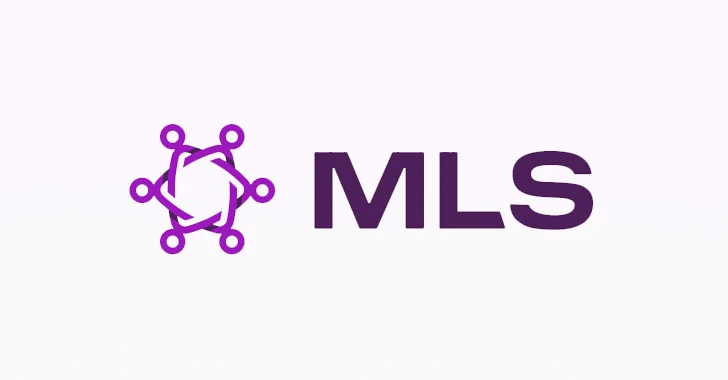Definition of MLS
MLS stands for Multiple Listing Service. It is a database of real estate listings shared among real estate brokers and agents belonging to the MLS network. The MLS system allows real estate professionals to share data about properties for sale with one another, making it easier to find a buyer or renter for a property. Click here to find out more about Multiple Listing Services.
History and Evolution of MLS
The MLS system was first introduced in the late 1800s to allow real estate brokers to share information about properties for sale. Today, the MLS system is a sophisticated database network that provides real estate professionals access to a wide range of information about properties for sale or rent.
The MLS system has evolved rapidly in recent years, introducing new technologies that make it easier to access and share information about properties. These changes have made the MLS system even more powerful, and it is now an essential tool for all those working in the real estate market.

What is the Largest Multiple Listing Service Organization?
The largest MLS organizations are the National Association of Realtors (NAR) in the United States and the Canadian Real Estate Association in Canada.
National Association of Realtors (NAR)
The National Association of Realtors is the largest MLS provider in the United States, representing over 1.4 million members, including real estate agents, brokers, and appraisers. NAR operates the largest MLS in the country, providing access to more than 800 regional MLS databases across the United States.
NAR’s MLS system offers a range of features and tools to help real estate agents and brokers manage their listings, including data sharing, lead generation, and transaction management. The MLS database is also accessible to the public through real estate websites such as Zillow and Realtor.com.
Canadian Real Estate Association (CREA)
The Canadian Real Estate Association is the national trade association for real estate agents in Canada, with over 130,000 members. CREA operates the MLS system in Canada, known as the Multiple Listing Service (MLS).
CREA’s MLS database contains listings from across Canada. The MLS database is also accessible to the public through real estate websites such as Realtor.ca.
Largest MLS Systems
When it comes to the largest Multiple Listing Service (MLS) systems, a few stand out. Here are some of the largest MLS systems:
California Regional MLS (CRMLS)
The California Regional MLS (CRMLS) is currently the most extensive MLS system in the United States. As of November 2018, the CRMLS had over 95,000 members and 100,000 active listings. The system covers large areas in southern California, the central coast, and the North Bay. If you include its data share agreements, the CRMLS is in more than half of California’s counties.
Bright MLS
Bright MLS is another extensive MLS system, serving over 98,000 real estate professionals in the United States. The system supports homeowners in its footprint, which covers parts of the Mid-Atlantic region, including Delaware, Maryland, New Jersey, Pennsylvania, Virginia, Washington D.C., and West Virginia.
Midwest Real Estate Data (MRED)
Midwest Real Estate Data (MRED) is an extensive MLS system that serves over 45,000 real estate professionals in the Midwest region of the United States. The system covers areas in Illinois, Wisconsin, Indiana, and Michigan.
Overall, these three MLS systems are some of the largest in the United States and serve as valuable resources for real estate professionals in their respective regions.
MLS Technology and Standards
The MLS is a technology-driven platform that provides real estate brokers with services. It also accumulates and disseminates information to enable appraisals. The MLS technology is based on several standards that ensure the accuracy and reliability of the data.

Internet Data Exchange (IDX)
Internet Data Exchange (IDX) is a standard that allows brokers to display MLS data on their websites. It enables them to provide homebuyers with real-time access to the most up-to-date information on available properties. IDX requires brokers to comply with specific rules and regulations to ensure the data is accurate and up-to-date.
Real Estate Transaction Standard (RETS)
Real Estate Transaction Standard (RETS) is a standard that defines how MLS data should be structured and exchanged between different systems. It provides a common language for MLS data, allowing brokers to exchange information seamlessly. RETS is based on XML and is used by many MLS systems today.
Web API
Web API is a standard that allows brokers to access MLS data through a web-based interface. It provides a user-friendly interface, enabling real estate agents and brokers to retrieve real-time data. Web API is based on RESTful principles and is widely used by MLS systems today.
MLS Benefits for Real Estate Professionals
Real estate professionals, including brokers and agents, benefit from utilizing the Multiple Listing Service (MLS) in several ways.

Cooperation and Compensation
One of the main benefits of the MLS is that it maximizes the potential for cooperation and compensation between brokers and agents. The MLS allows brokers and agents to work together to help buyers find the right home and sellers to get the best price for their property.
When sellers list their property on the MLS, they permit other brokers and agents to show their property to their clients. This means the seller’s property will get more exposure to potential buyers.
Additionally, the MLS provides a system for compensation between brokers and agents. When a buyer’s agent brings a client to see a property listed on the MLS, the seller’s agent agrees to compensate the buyer’s agent with a percentage. This system incentivizes agents to work together and helps ensure buyers are shown all available properties that meet their criteria.
Exposure and Marketing
The MLS enables agents to advertise their listings to a broad audience, including other agents, brokers, and potential buyers. This exposure can lead to more showings, offers, and a faster sale.
In summary, the MLS is a valuable tool for real estate professionals. It provides a platform for cooperation and compensation between brokers and agents and exposure and marketing for properties listed on it. Using the MLS allows real estate professionals to streamline their business and provide better client service.
MLS Access and Usage
Membership and Fees
Access to the Multiple Listing Service (MLS) is limited to licensed real estate professionals who have paid the necessary membership fees. Agents and brokers who wish to access the MLS must first become members of their local Realtor association, which is typically affiliated with the National Association of Realtors (NAR).
Membership in the NAR comes with additional benefits, such as access to real estate market data, legal resources, and educational opportunities. However, it is essential to note that membership in the NAR is not a requirement for MLS access.
Rules and Regulations
The MLS follows specific laws and regulations that ensure ethical behavior among its members. These rules may vary depending on the MLS but typically include guidelines for listing properties, sharing commissions, and resolving disputes.
For example, agents and brokers must follow strict guidelines when listing a property on the MLS. They must provide accurate and up-to-date information about the property, including its condition, location, and price. Moreover, they must also align with fair housing laws and disclose any potential conflicts of interest.
In addition, the MLS has rules regarding sharing commissions between agents and brokers. Typically, the listing agent will offer a commission to agents that bring a client to the property. The commission is usually split between the two agents, with the listing agent receiving a more significant percentage.
MLS Impact on Buyers and Sellers
Property Information Availability
One of the most significant advantages of the Multiple Listing Service (MLS) is property information availability to buyers and sellers. The MLS database provides a comprehensive list of properties for sale, including detailed information about the property’s features, location, price, and more. This information is essential for buyers to make informed decisions about potential purchases, and for sellers to accurately price their properties.
The MLS makes it easier for buyers to find the right property by providing a centralized location for all available listings. This saves buyers time and effort in searching for properties across multiple platforms. Additionally, the MLS allows buyers to quickly compare properties based on their features, location, and price, which helps them make informed decisions about which property to purchase.
Sellers benefit from the MLS by having their properties listed in a centralized database that is easily accessible to potential buyers. This increases the visibility of their properties and attracts more potential buyers. The MLS also provides sellers a platform to price their properties accurately based on market trends and comparable properties.
Marketplace Efficiency
The MLS also plays a crucial role in increasing marketplace efficiency. The MLS facilitates the real estate transaction process by providing a centralized database of available properties. This reduces the time it takes for buyers to find the right property and for sellers to find potential buyers.
The MLS also helps maintain an accurate inventory of available properties, which helps prevent overpricing or underpricing of properties. This benefits both buyers and sellers by ensuring that properties are priced accurately and reasonably.
Regional MLS Variations
Florida’s MLS
Florida’s MLS is a regional MLS that covers the state of Florida. It is one of the largest MLSs in the country and has a massive database of listings, including residential and commercial properties. Over the state, Florida’s MLS is used by thousands of real estate professionals and is known for its comprehensive data and user-friendly interface.
Georgia MLS
Georgia MLS is the largest MLS in the state of Georgia, covering over 30,000 square miles and serving more than 45,000 members. Its vast listings database includes single-family homes, townhouses, condos, and commercial properties. Georgia MLS is known for its advanced search features and robust data, making it a popular choice among real estate professionals in the state.
Arizona Regional MLS
Arizona Regional MLS is the largest MLS in Arizona, covering more than 39,000 square miles and serving over 40,000 members. It has a comprehensive listings database, including residential, commercial, and land properties. Arizona Regional MLS is known for its advanced technology and user-friendly interface, making it a top choice for real estate professionals in the state.
Regional MLSs like Florida’s MLS, Georgia’s MLS, and Arizona’s Regional MLS play a crucial role in providing real estate professionals with accurate and comprehensive data on properties in their respective regions. These MLSs offer a range of advanced search features, including property type, location, price range, and more, making it easier for real estate professionals to find suitable properties for their clients.
Arab MLS

Newly established in the Middle East by the reputable businessman Ahmed Elbatrawy, Arab MLS aims to provide the MENA Region with outstanding real estate services, enabling real estate brokers and agents to access a wide range of available properties, list properties for sale, and connect with a bigger audience. Till now, Arab MLS has operated in several countries, launching Egypt MLS, Dubai MLS, Saudi MLS, Qatar MLS, and Bahrain MLS. To learn more about Arab MLS and its services, visit https://arabmls.org/.
MLS and Real Estate Listing Platforms
Real estate professionals and home buyers use several online platforms to search for homes. These platforms include Zillow, Redfin, and Trulia, among others. These platforms are designed to provide a user-friendly experience for home buyers and sellers and a platform for real estate professionals to list and sell homes.
Zillow, Redfin, and Trulia
Zillow, Redfin, and Trulia are three popular real estate listing platforms. These platforms allow users to search for homes based on location, price, and other criteria. They also provide detailed information about each house, including photos, property descriptions, and neighborhood information.
One of the key benefits of these platforms is that they allow real estate professionals to list homes for sale.
Social Media Integration
In addition to these popular listing platforms, social media sites like Facebook have become essential tools for real estate professionals. Many real estate professionals use Facebook to connect with potential clients and to advertise their listings.
One of the key benefits of social media integration is that it allows real estate professionals to reach a wider audience. Sharing their listings on social media will enable them to get people who may not have seen them.
Overall, these platforms have revolutionized the way that people search for homes. They have made it easier for home buyers to find the homes they are looking for and provided real estate professionals with a powerful marketing tool.
Frequently Asked Questions
How does Bright MLS compare to other major MLS providers?
Bright MLS is a primary MLS provider in the United States, serving over 95,000 real estate professionals in the Mid-Atlantic region. Compared to other major MLS providers, Bright MLS offers a broader coverage area across multiple states.
What are the features that make Stellar MLS stand out?
Stellar MLS is the largest MLS provider in Florida, serving over 60,000 real estate professionals in 16 counties. The platform offers a comprehensive listings database, including residential, commercial, and rental properties. Stellar MLS also provides advanced search tools, mobile access, and various training and support resources for real estate professionals.
Which MLS service offers the most comprehensive coverage by state?
The largest MLS service by coverage area is California Regional MLS, which covers over 100,000 square miles and serves over 100,000 real estate professionals in California. The platform offers a comprehensive listings database, including residential, commercial, and land properties.
Can you list the advantages of using Beaches MLS for real estate professionals?
Beaches MLS is one of the largest MLS providers in Florida, serving over 10,000 real estate professionals in Palm Beach and Martin Counties. The platform offers a comprehensive listings database, including residential, commercial, and rental properties. Beaches MLS also provides advanced search tools, mobile access, and various training and support resources for real estate professionals.
How do MLS platforms differ from real estate listing sites like Zillow?
MLS platforms are designed for real estate professionals, while listing sites like Zillow are intended for consumers. These platforms offer a comprehensive listings database, including properties unavailable on listing sites. Additionally, MLS platforms also provide advanced search tools, mobile access, and various training and support resources for real estate professionals.
What are the key benefits of using the largest MLS for real estate transactions?
The key benefits of using the largest MLS for real estate transactions include access to a comprehensive database of listings, advanced search tools, mobile access, and various training and support resources for real estate professionals. Using the largest MLS also ensures cooperation between buyers’ and sellers’ brokers for the benefit of consumers.













